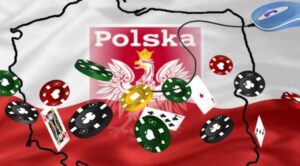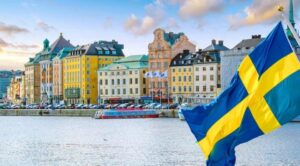Key Moments:
- Malta’s gaming and programming sectors each account for approximately 7% of the country’s gross value added.
- The gaming industry in Malta has experienced an average annual growth rate of 16 to 17% since 1995.
- Licensed gaming companies in Malta currently employ between 14,000 and 15,000 full-time equivalents.
Understanding Malta’s Digital Economy Structure
Keith Borg, Director for Economic Statistics at Malta’s National Statistics Office (NSO), recently underscored the pivotal influence of the gaming sector on the country’s economy. Gaming, referenced as NACE 92 by the European statistical classification of activities, is closely integrated with NACE 62, which encompasses programming and computer services. This interconnection has cemented both sectors as foundational elements within Malta’s broader economic framework.
Borg explained the importance of these sectors by noting, “Both sectors within the economy account for around 15% of the gross value added. Gaming accounts for around 7%, while the programming sector accounts for another 7%.”
Long-Term Expansion and Shifting European Trends
The gaming industry in Malta has demonstrated robust performance, sustaining average yearly growth between 16 and 17% since 1995. Borg attributes the country’s success to its established ecosystem, which has helped Malta stand out as a leading destination for gaming enterprises and supported its continuing economic sustainability.
Nevertheless, the European environment is evolving. Borg has observed altered dynamics since 2021, particularly within the German market where regulatory changes and new licensure protocols have reshaped the sector. He stated, “We saw kind of the gaming sector reaching more of a plateau, whereas NACE 62 increased its share over the past years.” This indicates a growing emphasis on software development and related services, suggesting programming activities will continue to be a key driver in the years to come.
Economic Contributions: Employment and Productivity
The sector’s significance extends beyond direct revenues. Malta’s most recent regulatory report indicates that gaming companies licensed in the country now provide employment to between 14,000 and 15,000 full-time workers across technical and operational roles. Borg highlighted the high productivity levels within these sectors: “The gaming sector and NACE 62 are known for being high-productivity sectors. Employees in relation to other sectors produce more in terms of gross value added.” Despite employing relatively fewer people, these industries contribute disproportionately to Malta’s economic output.
Online Platforms Powering Sector Growth
Borg made clear that the term “gaming” in Malta is primarily linked to online engagement, with digital casinos and interactive paid games dominating the industry. Traditional land-based casinos play a much smaller role, contributing only a minimal share to gross value added. Borg stated, “There is no doubt that the largest portion accounted for in terms of gross value added is coming from online gaming, not land-based.” This trend underscores Malta’s place as an international hub for online gaming operations.
Adaptation, Innovation, and Forward Momentum
A major factor behind the sector’s resilience is its rapid adaptation to technological advances. Borg predicted a rise in hybrid business models that leverage both digital and physical formats, fostering ongoing efficiency and profitability. He expressed confidence in the industry’s innovation, saying, “The industry has proven that it is capable of integrating and adapting to new technologies easily. It will continue to absorb newer technologies, which will make it grow more efficient and therefore more profitable.”
Emerging advancements—including artificial intelligence and digital assets—are already reshaping the space, with further change anticipated. Borg commented, “The opportunities there are infinite. It is not possible to quantify what the gaming industry will look like in five years, but it will most definitely gain momentum when it comes to the adoption of AI.”
Sustaining Malta’s Leadership in Digital Gaming
Although the NSO does not issue forward-looking forecasts, Borg remains optimistic about ongoing positive momentum in Malta’s digital economy. With gaming and programming forming the foundation of the nation’s economic engine, Malta is positioned to reinforce its role as a central European destination for digital entertainment.
| Sector | Gross Value Added (%) | Average Annual Growth (since 1995) | Employment (Full-Time Equivalents) |
|---|---|---|---|
| Gaming (NACE 92) | 7 | 16–17 | 14,000–15,000 |
| Programming (NACE 62) | 7 | N/A | N/A |
- Author


